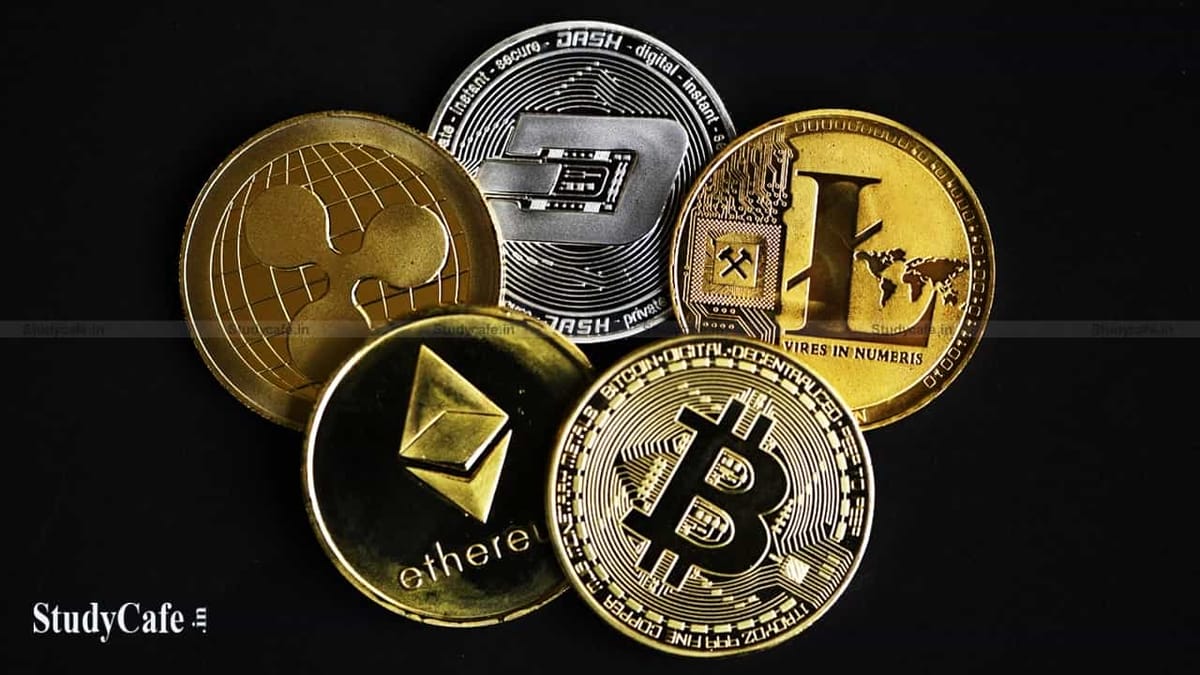Reetu | Oct 20, 2021 |

Everything You Need to Know About Cryptocurrency
Cryptocurrency is a digital asset. The term comes from the fact that all of its transactions are highly encrypted, ensuring that the transactions are safe. Unlike traditional currencies, which are regulated and controlled by a central body, it is decentralized. The supply of cryptocurrency is restricted and is sometimes compared to precious metals like gold and silver.
Bitcoin is created by mining, which is a process in which powerful computers solve extremely complicated tasks in exchange for a reward for completing successful cryptocurrency transactions. In other words, cryptocurrency exchanges frequently result in the introduction of new coins into the market.
Many cryptocurrencies use blockchain to manage and record transactions, which allows numerous entities to maintain identical transaction records, making it a highly secure system for your money.
A cryptocurrency newcomer may believe that the various currencies appeared out of nowhere, yet there is a long history behind them. With the advent of the internet, the capacity to move information and data became far faster than it had previously been. Email transformed physical mail into a digital format, allowing for textual conversations and document transfers between parties in a matter of seconds. Cryptocurrency is a similar concept, except it deals with value rather than money.
In the digital world, online banking, internet payment gateways, and credit cards operate at breakneck speed. Such solutions, on the other hand, frequently involve third parties, are censorable, and, depending on the banks involved, may require settlement on the backend during weekdays.
Before the year 2000, efforts at online monetary solutions, such as DigiCash, arose, but it wasn’t until 2008 that the first modern-area cryptocurrency gained considerable adoption and sustainability. In 2008, Satoshi Nakamoto, a pseudonymous developer, published Bitcoin’s (BTC) white paper, which described the asset’s textual concept.
The problem of consumers spending the same asset twice, known as double-spending, was overcome with Bitcoin. Due to the lack of a single point of failure, Bitcoin is administered by a network of computers spread around the globe that jointly authenticate transactions and defend the network from hacking.
In 2009, Bitcoin debuted its blockchain network. Since then, a flood of additional crypto assets has been launched by individuals and businesses, some of which claim to be faster or more private. Other blockchains, like Ethereum, have also been developed, providing developers with a foundation on which to build a variety of new assets and solutions.
Cryptocurrency has evolved from Bitcoin, its first asset, to a thriving industry comprising blockchains, solutions, and assets. Within the industry, subcategories have emerged, such as the decentralized finance niche. DeFi aims to give individuals with similar financial tools to those they’ve grown accustomed to, but with the added benefit of no third-party involvement. This is true for borrowing as well as lending.
Given the rapid use of cryptocurrencies, there are a variety of options for purchasing cryptocurrency. Crypto-native exchanges enable you to buy and sell a variety of digital assets. In the real world, PayPal is an example of a platform where people may purchase and trade certain digital assets. Crypto ATMs can also be seen in different places of the world.
Payments are accepted by platforms through bank transfers, crypto-transfers, or credit cards. In a person-to-person transaction, Bitcoin may also be purchased with cash. The capacity to buy and sell cryptocurrency on any specific site, however, varies by region.
In addition to being highly secure, Bitcoin is peer-to-peer (P2P), which means there is no middleman (such as a bank or credit card agency) and transaction costs are low.
It is quick and completely transparent — every Bitcoin transaction, for example, is recorded in a public ledger that is open to the public. It is impossible to forge or counterfeit. Because blockchain transactions are irreversible, the possibilities of fraud are reduced even further, and your money is extremely safer.
After the 2008 financial crisis, the globe realized issues with conventional banking systems, and Bitcoin arose as a gold rush of potential. It was the first cryptocurrency to be created using blockchain technology, and it has the potential to transform the way people think about money. Forbes rated Bitcoin as the best investment in 2013.
According to Deloitte, in late 2020, over 2300 US firms embraced Bitcoin as a form of payment, making it a desirable asset to own for the average person.
Cryptocurrency has gone a long way in the previous ten years, progressing at breakneck speed. The value may be kept, moved, and spent in a variety of ways using a variety of assets and solutions, and DeFi has paved the way for new borrowing and lending opportunities.
Some mainstream firms are also interested in blockchain technology and are researching potential applications, such as supply chain management. According to the growth and popularity seen since 2008, when Nakamoto published the foundation for a small asset named Bitcoin, the future of cryptocurrency and its accompanying technology appears bright.
In case of any Doubt regarding Membership you can mail us at contact@studycafe.in
Join Studycafe's WhatsApp Group or Telegram Channel for Latest Updates on Government Job, Sarkari Naukri, Private Jobs, Income Tax, GST, Companies Act, Judgements and CA, CS, ICWA, and MUCH MORE!"